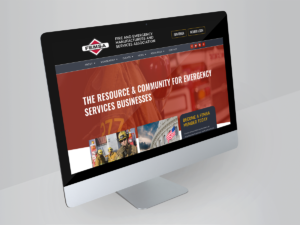Author: Jeffrey D. Johnson, CEO, Western Fire Chiefs Association
Warren Buffett is known for saying “Only when the tide goes out do you discover who’s been swimming naked.”
For reasons beyond anything in a fire chief’s control, we find ourselves amidst a pandemic and headed for what’s likely to be a substantial financial setback. We are already working with chiefs who are being asked to cut their budgets immediately by 10% – 25%. You can’t do that with copy paper and coffee!
There are plenty of people who will ponder the vagaries of financial management…I will not. Rather, I will reflect on my time as a fire chief when we managed our way through an immediate 17% revenue reduction due to a tax limitation initiative. Since then, I have experienced even harsher financial conditions in business, which has taught me some practical lessons that I hope you find helpful.
Many of our governmental models are different—city, county, state, special district, fire authority, etc. Likewise, how we are funded is as varied–property tax, sales tax, fees etc. I will stay away from the specifics of each and offer broad actions to consider.
I learned that managing a financial emergency isn’t much different from managing our typical emergency. Time matters and you are not likely to get it precisely correct initially. Early in your decision process, it helps to broaden your circle of advisors. Keep labor in the loop and keep the conversation realistic and honest. You will be tempted many times to shade the truth or not fully disclose details, but any advantage that may bring is short-lived. This is the time to be an open book and a good listener.
Be clear about what needs to be achieved and do not sugarcoat the reality, nor fear monger. Be realistic, clinical and factual. While candor helps spur creative solutions, it also creates worry and unrest amongst the workforce. Your fiduciary responsibility is to the organization, but employees worry about real mortgages and health insurance. Do what you can to be sensitive to concerns of those around you.
Resist the temptation to think about this as a one-year problem. By considering long-term changes, you can often create financial stability and use current cash to bridge the gap. I’m sure you’ve heard the axiom “never let a perfectly good emergency go to waste.” In the midst of a financial reset, take time to reimagine the organization and how you do business. Now is a time to be bold, not grow mold!
While never certain, we can make some assumptions about the near-term financial impacts to us as a local government. Consider the following points as discussion starters with your team:
- Due to local government and professional staff not being able to work, we should expect construction starts to be stunted for 2020 and early 2021 and revenue projections adjusted accordingly.
- Commercial office space will be devalued as many businesses learn that their job can be executed from home. The corresponding reduced demand will shrink the taxable value. In many areas, you should expect property tax appeals to broadly lower taxable values in the commercial segment.
- In most communities, small businesses will suffer and many will not reopen. In my community, it is projected that half the businesses won’t reopen. The corresponding loss of enterprise, jobs, sales tax, etc., will impact local government budgets.
- For property tax dependent local governments, we can expect that there will be an increase of people who defer or do not pay their property taxes. If I were building a budget for next year, I would project about a 3% reduction in tax collections/deferrals for 2020/2021.
- Pension rates paid by employers as a percentage of payroll are based on a scheduled actuarial. Pension funds are invested in the stock market and other investments such as real estate, etc. When the value of the pension portfolio drops, your pension system must increase rates to keep the fund solvent. Therefore, you should watch closely what is occurring to your pension fund earnings to anticipate an increase in rates.
- Some good news…recovery from the COVID-19 economy will likely mean lower interest rates on borrowed money in order to stimulate the economy. If you have the bond authority, consider building capital projects now or refinance debt.In addition to these probable consequences, I offer the following strategies to consider:
- If layoffs are in your future, before laying off your newest employees, consider incentivizing people who are already retirement eligible but still working. Many people may choose to retire now instead of later for the right incentive. Recruitment and training cost real money, as does unemployment insurance payments, etc. Further, an entry-level employee salary compared to a retirement eligible employee will create savings. Add up these and other cost savings and use that money as an incentive for people who can retire and may happily choose to.
- Rethink station locations, deployment and mergers/consolidations. Doing everything as a standalone agency is typically more expensive than cooperating with neighboring agencies. I’m keenly aware that there can be challenges and difficulties in this area, but they can typically be overcome.
- Prioritize your services based on what the community needs and what you uniquely provide. There is a difference between a good investment and a core service, such as emergency response. In difficult times, agency priorities tend to drift toward the bottom of Maslow’s hierarchy and sometimes, you don’t have many choices. Be honest with yourself about what the community needs and prioritize accordingly.
- Cut fast and deep. Organizations that slowly bleed and limp their way to the financial bottom only prolong the pain and emotional unrest. Organizations that make strategic decisions, act swiftly and adequately, begin their rebuilding the next day. The feeling of relief and focus on the future is healthy. Furthermore, you may have caused employees to bypass good opportunities by being unrealistic.
As the chief executive of an organization, your principle obligation is financial performance. Absent that, your organization can’t fulfill its obligations or do its job. The buck stops with you. Failure to rationally and realistically manage financial realities will become part of your legacy—that fact is both unavoidable and unmaskable. More importantly, your people and the community need you to effectively preserve meaningful services.








